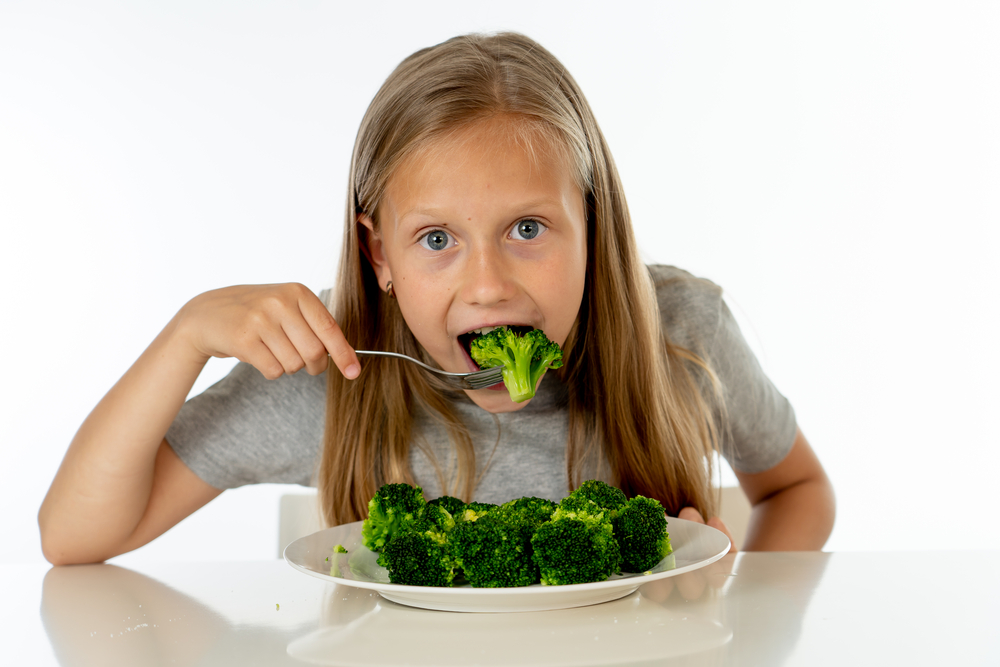If you want to set your kids up for a lifetime of good health, then it’s important to pay attention to the little bugs in their bellies. And we’ve got 6 easy tips to boost your kid’s gut health that’ll help you do just that!
We’ve become fascinated with the human microbiome lately (which is a fancy way of saying the bazillions of bacteria that make up your gastrointestinal tract). It’s kind of like the new frontier of medicine… so much cool stuff is being discovered every day.
For instance, did you know that your children’s gut health can impact their personality and behavior? Well it can! And that’s not all…
Gut bugs also play a role in regulating metabolism and weight gain. And these bacteria also help control the immune system, which means they play a role in determining things like how quickly your child will recover from the flu, or whether or not they’re allergic to milk.
You can see now why we find the microbiome so fascinating, and why it makes sense you’d want to bolster your kid’s gut health.
Unlike DNA, which is pretty much fixed from the get-go, your child’s microbiome starts out as a blank slate. It is largely the product of lifestyle and environment, which is good news for parents because it means you can affect it’s healthy development!
But the key is to start boosting your kid’s gut health from infancy, because the older they get, the more the makeup of their microbiome is established and it therefore becomes harder to change.
The good news? There are a few easy things you can do to put your child on the path to gut health, right from the start.
Follow these 6 simple guidelines and you’ll be helping your child develop a healthy microbiome which can go a long way towards lifelong health.
6 Ways To Boost Your Kid’s Gut Health
1. Feed The Good Bugs
Your child’s microbiome is made up of “good” and “bad” bacteria. It makes sense then that you’d want to feed the good bugs so they can thrive, while starving out the bad ones.
Bring on the fiber! Good bacteria thrive on dietary fiber and complex carbohydrates found in plant material. What happens if your child’s belly doesn’t get enough fiber? The bugs will start eating your child instead! And no, that’s not a typo.
Research indicates that hungry gut microbes (if they are lacking the fiber they crave) will eat the mucus that lines and protects the inner walls of the intestine. If bacteria get too close to these walls, they can set off alarm bells within the immune system, resulting in an inflammation that can eventually lead to autoimmune disorders such as inflammatory bowel disease (IBS), allergies, or asthma.
How to ensure the good bugs in your child’s tummy gets the fiber they need? Feed your child a diet rich in fruits, vegetables, whole grains, nuts, and legumes so that their developing microbiome has lots of nourishment.
RELATED: How To Get My Picky Eater To Try More Vegetables
And yea, we get it… many high-fiber foods are not kid favorites. So start with foods that are more familiar and work your way up: carrots dipped in hummus, bananas, or apples and pears with the peels on.
Other whole foods that are good for the microbiome include fruits, fiber-rich veggies, whole grains and pulses, such as:
- Peaches.
- Plums.
- Apricots.
- Mangoes.
- Pomegranate.
- Cherries.
- Arugula.
- Asparagus.
- Broccoli.
- Kale.
- Radicchio.
- Black beans.
- Navy beans.
- Chickpeas.
- Lentils.
- Walnuts.
It may take a little trial and error at first, but find out what high-fiber foods your child will eat and be sure they have some each day.

2. Try Fermented Foods
Feeding children probiotic-rich fermented foods, which contain good bacteria, can improve kid’s gut health.
Yogurt, for example, has healthy bacteria and many kids actually like the taste. Serve it with some cut-up fresh fruit and honey to increase its gut-health benefits. Use whole plain yogurt, and be sure to avoid any yogurt with a lot of added sugar or sweet fruity layers.
Fermented kefir is another form of edible (good) bacteria. And for more adventurous kids, miso, sauerkraut, and kimchi are also super gut-healthy fermented foods.
3. Probiotics
Even if you do everything you can to support your child’s microbiome, it’s impossible to fully protect them from the many environmental toxins, stressors, and other factors that can create gut imbalances.
A daily probiotic supplement can work to continually replenish this essential beneficial bugs to support healthy brain and body function.
Look for a high-quality, multi-strain kids’ probiotic formula like PRO-Kids that provides protection from stomach acids to ensure your child gets a consistent, living dose of gut-health boosting goodness.
4. Don’t Over-Sterilize
You’ve heard the expression, “too much of a good thing”? Well that definitely applies to sanitizing products.
Consistent use of hand sanitizers and other types of antibacterial cleansing products can lead to lower levels of good bacteria in the gut.
And while it’s natural to want to protect our children from illness-causing bacteria, it’s easy to go overboard.
Try staying away from hand sanitizers and bleach-based cleaning products and stick to good old-fashioned soap instead. It still gets the job done, without wiping out the good bugs your kids need to develop their microbiome.
5. Avoid Unnecessary Antibiotics
Notice we said “unnecessary”. Because while antibiotics definitely have their place and can even be lifesaving, that doesn’t mean they don’t also have drawbacks.
Because antibiotics kill bacteria indiscriminately, they get rid of the good bugs along with the bad. And that loss can have a stronger impact on your child’s long-term health than you might know.
A 2014 University of Chicago study on mice has linked antibiotics with peanut allergies, and a recent Johns Hopkins University study connected antibiotic use in children with excess weight gain throughout childhood.
In light of this and other research, it’s important that parents reserve antibiotics only for illnesses for which they are necessary. If you child has a virus (which won’t respond to antibiotics anyways) don’t try giving your kids antibiotics in the hopes it might make them well faster.
Work with your child’s doctor and be sure they are only prescribed antibiotics to treat bacterial infections.
Want BETTER gut health for your kids? CHECK OUT this highly rated Children’s Probiotic!
6. Let Them Get Dirty
What do we mean by this? Let your kids run around outside and play with your pets!
Both activities are simple (and fun) ways for children to come into contact with good bacteria, while avoiding many of the bad ones that can make them sick.
And not only does plenty of outdoor playtime help alleviate stress, a well-known microbiome diminisher, but studies show that increased physical activity also leads to a more balanced microbiome. It’s a win-win all around.
RELATED: How Your Children’s Gut Health Affects Their Behavior
Bottom line: A healthy gut = fewer health problems over the long run.
By fueling your child’s developing microbiome with the good bacteria it needs you are potentially helping them experience fewer illnesses, have better moods, and enjoy faster recovery times.
So prepare your family for lifelong health by following these 6 tips to improve your kid’s gut health today.
SHARE this article with any parent that might want to improve their kid’s gut health.












